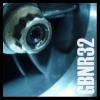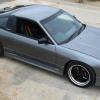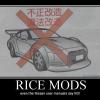Dp1 - Ground Up Track Car
Announcements
-
Similar Content
-
Latest Posts
-
After cleaning up a rusty cooling system in a 33 gtst that's been sitting for years it seems to have cleaned out the head gasket too haha. It seems the Tomei metal gasket works without machining surfaces? Or put oem? Also should put an oil restrictor while the head is off? Thanks
-
Thanks, I definitely saw the more expensive options from Crank and driveshaft shop. Thank you for the D-max option. Still hopeful someone has an OEM out of the box option I found that the 300zx NA Left drive shaft is a good match for the Right on the R33. https://www.gsplatinamerica.com/product/ncv53040 Just need to find Left CV for the R33, I cannot find any <=22" axles.







Recommended Posts
Create an account or sign in to comment
You need to be a member in order to leave a comment
Create an account
Sign up for a new account in our community. It's easy!
Register a new accountSign in
Already have an account? Sign in here.
Sign In Now